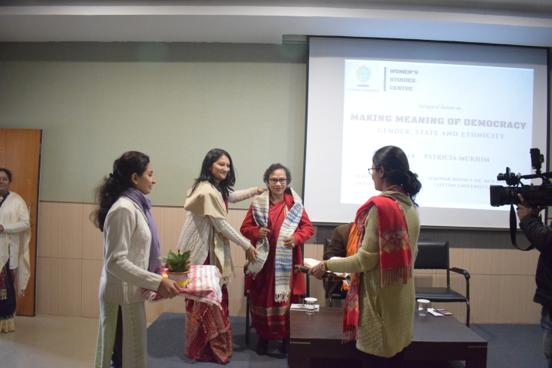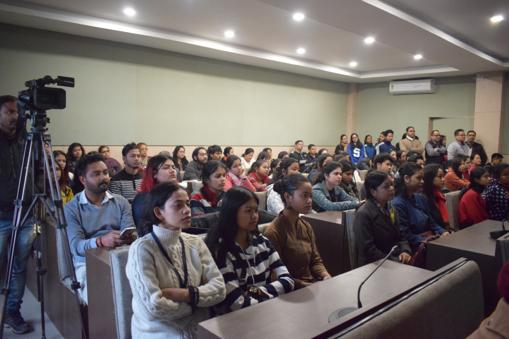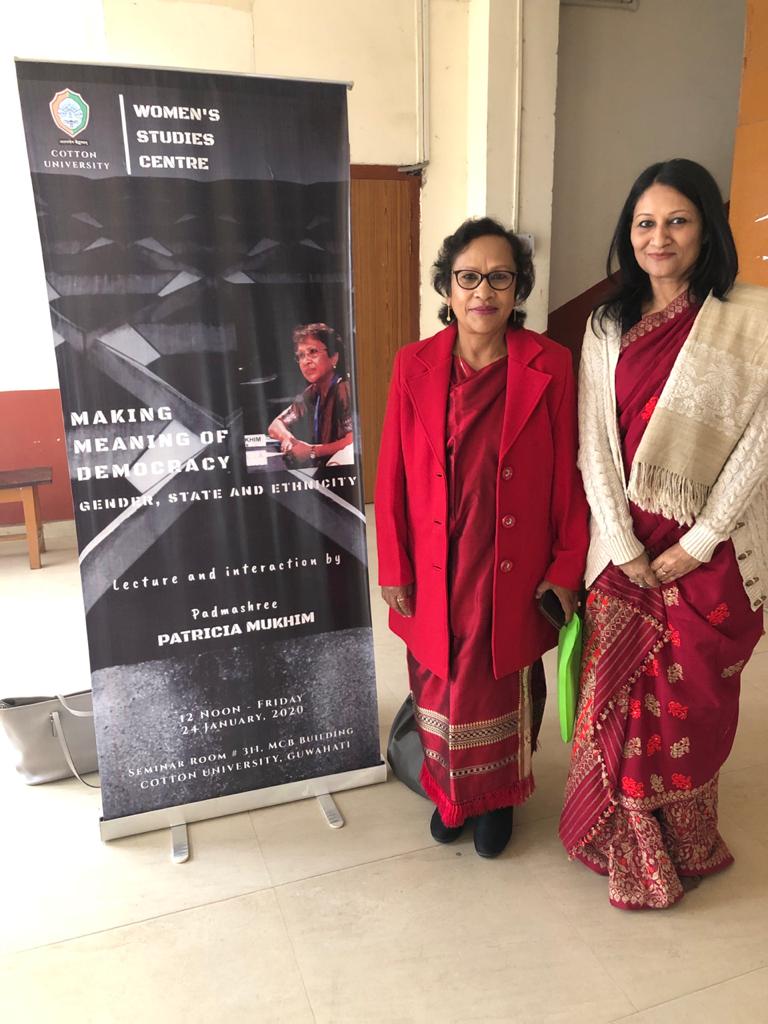Blog

- News
Inauguration of Women's Studies Center, Cotton University, Guwahati
If democracy is about inclusion and participatory decision-making it also means that half of the population which is female also has a view and that view must be respected. Gender is essentially a socio-cultural norm of assigning roles to people of different genders. Earlier the gender construct could only envisage male and female roles for members of society based on their biology. Today we have the challenge of facing up to a world where there are different sexual and gender orientations that need to be included in our daily discourses on politics, economics, society and religion. The denial that there is this third, fourth of even a fifth gender group can be intimidating but that’s what democracy has to deal with in this rapidly changing environment.
Patricia Mukhim, excerpt from Making Sense of Democracy: Gender, State Ethnicity, inaugural address for Women's Studies Centre
On 24 January 2020 Women’s Studies Centre (WSC) was inaugurated at Cotton University, Assam, with an inaugural lecture by eminent journalist and writer Patricia Mukhim, Editor, Shillong Times. Dr Rakhee Kalita Moral, Associate Professor, Convenor of the WSC, outlined the background and objectives of WSC in her opening statement as follows:
“Two gender workshops involving faculty, the senior management, students as well as faculty from other institutions of the region and conducted at Cotton University over the past two consecutive years resulted in also bringing to the fore the increasingly felt gender gap at various levels and sensitized the stakeholders towards generating new knowledge on women and new curricular structures to accommodate more women-centric issues, complexities and their diverse aspects from real-life and lived, experiential practices into the academic ambit. The CWS at Cotton University opens up new conversations and discussions in this direction and our immediate activities at the recently set up Centre is geared to meet this need. The CWS, Cotton looks at providing an informed space for creating a community of feminists, scholars , intellectuals , policy makers, social activists, writers and artists among other public voices with concerns in gender, sexuality and larger issues of power and equality in our contemporary society. We hope that it will also create a platform amenable to linkages and networks with other such centres that can work in tandem on gender inclusive , culturally plural and expanding circles of engagement around ideas and concept we need to think about in the present time.
While ensuring that women and gender components are incorporated into existing curriculum , it shall be the endeavor of this Centre to bring into teaching new courses and programmes that build capacities for women and their development. We propose to create here a hub for academic innovation by designing programmes that allow the CWS to become a platform where gender interfaces the legal and cultural, the social and the intellectual , and the political and the economic . The academic thrust of this centre would be to understand gender as a central category of analysis that informs the way global structures are legitimized and normalized. It will also aim to decolonize feminist debates and knowledge production and recognize the ways in which feminist projects intersect race, class, caste, ethnicity, religion , indigeneity and nationality. The Centre would attempt to bring to focus questions of location and privilege, keeping in mind our own geo-political space , Northeast India, under the South Asian rubric to unsettle the conventional ideas of Western feminism and complicate the more homogenous, identifiable discourses that are offered for learning and research.
Since gender, is by definition interdisciplinary, this Centre hopes to provide a slew of opportunities for research in feminist and action research method that shall take the researcher to the field for short -term projects which can be documented both as working papers or in journals subsequently. Further, the WSC will develop training modules both short and long term , and is currently designing a leadership programme for mid career incumbents and professionals for their career enhancement. The CWS is also gearing itself upto introducing in the next academic session later this year, a PG Diploma in Gender Studies that will open up more scope for academic rigour in the university in allied disciplines and also help in specialized scholarly training in issues of rights, equality and non discrimination, democratic and civil rights, while also examining women’s everyday practices, oral histories, movements and literatures, their roles in preservation of resources, ecology and safer protected environment. We hope to find in this Centre a common platform connecting disciplines, institutions and organisations across that can engage contribute and share resources and help build the Centre with the best we have intellectually and culturally. It proposes also to innovate teaching/ learning methods as pedagogy itself undergoes transformation with community-led knowledge, participatory learning and democratic modes of curriculum entering the academic spaces .”

Dr Rakhee Kalita Moral welcoming Ms Patricia Mukhim

Audience at the inaugration

Inauguration of Women's Studies Centre, Cotton University, Assam
For media coverage, https://www.pratidintime.com/womens-studies-centre-inaugurated-in-cotton-university/
WSC organised a poster campaign by the students of Cotton University on the theme 'I am Generation Equality: Realising Women's Rights' and a lecture by Smt Gita Rani Bhattachraya to commemorate International Women's Day on 7 March 2020. For more information, please visit: https://www.youtube.com/watch?v=V4UzyxMAYlU
Project
- Log in to post comments


